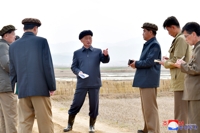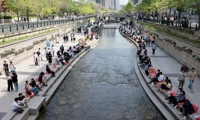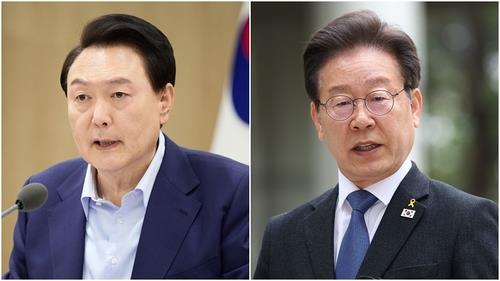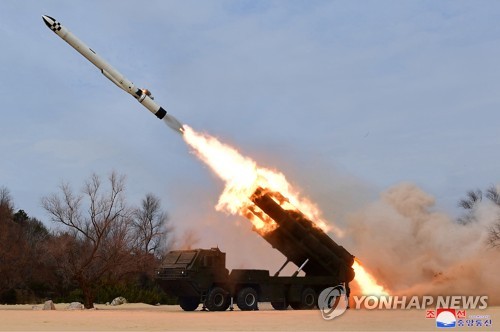(EDITORIAL from Korea Times on May 23)
Wrong nominee for PM
Has President given up harmony and communication?
The office of prime minister has been vacant for nearly a month. How many ordinary Koreans might have felt ― even noticed ― the void? The nominally No. 2 post in the executive branch is so ceremonial without real power that it hardly matters who sits there. Since President Park Geun-hye took office, however, the premiership has been the epicenter of political and social controversy because of her ceaseless selection of incompetent, unethical or ideologically biased candidates.
On Thursday, President Park added one more case to her long list of controversial nominees for the second-highest administrative job. By naming Justice Minister Hwang Kyo-ahn as the candidate for the new prime minister, the chief executive made it clear she is not interested in such phrases as national harmony and bipartisan governance, preferring instead political confrontation and social tension.
Announcing the nomination, a Cheong Wa Dae spokesman said it is aimed at rooting out corruption and generating sustainable economic growth. In the long run, few could deny the reasoning. More immediately, however, how will Park be able to implement policies effectively by antagonizing opposition parties and scaring ordinary people?
Yes, cleaning up corrupt officialdom is urgent and necessary. In a politically backward country like Korea, however, the governing camp has often used the purge as a tool for cracking down on political opponents.
Signs of it are already visible this time, too. The prosecution appears set to wrap up the investigation into one of the biggest corruption scandals now under way ― which involves current and former presidential chiefs of staff and Park's erstwhile campaign managers ― with just some slaps on the wrist. If the public prosecutors instead soon expand their probe to the entire political community, Koreans will see why the President picked Hwang because the justice minister has been at the forefront of all politically engineered prosecutions.
Hwang took the lead in downplaying the state spy agency's meddling in the 2012 presidential election, forcing it to dissolve the leftist United Progressive Party and kicking away prosecutors who did not obey orders from Cheong Wa Dae. He is, as an opposition politician called him, a "loyal dog." Hwang's ideological bias is so strong that he describes the April 19, 1960, Student Uprising as "social turmoil" while praising the military coup d'etat staged by former President Park Chung-hee the following year as a "revolution."
It is common sense that a person of such inclination and background will be of no help in harmonizing different sectors and classes of people, and in persuading politicians of varied stripes. That is why most Koreans have wanted at least an economic expert or a more neutral figure that people can trust for the new prime minister.
President Park has poured cold water on those widespread expectations. Park's obstinacy might have come from her confidence based on her party's victories in a series of small elections. If so, the nation's first female president and daughter of a dictator will regret her shortsightedness in the future. Korea is facing double trouble ― an economic slump at home and a diplomatic crisis abroad. This is no time for fighting for domestic hegemony or even inter-Korean one-upmanship. Unity and harmony of Koreans has never been more necessary than now.
As it stands now, Park could end up as a failed president, which will be a far bigger tragedy for the nation than for her. All this shows why the National Assembly must do its best to vet ― and eliminate ― this problematic nominee, also tainted by alleged tax evasion, excessive pay from a law firm and dubious exemption from military duty.
(END)
-
 Overdue debut of Korean abstract art pioneer Yoo Young-kuk at Venice Biennale
Overdue debut of Korean abstract art pioneer Yoo Young-kuk at Venice Biennale -
 Defense chief says N. Korea's hypersonic missile 'unsuccessful' in last-stage glide flight
Defense chief says N. Korea's hypersonic missile 'unsuccessful' in last-stage glide flight -
 Relax, immerse yourself in scents at Venice Biennale's Korean Pavilion
Relax, immerse yourself in scents at Venice Biennale's Korean Pavilion -
 N. Korea has capability to genetically engineer biological military products: U.S. report
N. Korea has capability to genetically engineer biological military products: U.S. report -
 S. Korea marks 30th anniv. of Korean Pavilion at Venice Biennale with contemporary art
S. Korea marks 30th anniv. of Korean Pavilion at Venice Biennale with contemporary art
-
 Overdue debut of Korean abstract art pioneer Yoo Young-kuk at Venice Biennale
Overdue debut of Korean abstract art pioneer Yoo Young-kuk at Venice Biennale -
 Relax, immerse yourself in scents at Venice Biennale's Korean Pavilion
Relax, immerse yourself in scents at Venice Biennale's Korean Pavilion -
 Artist Lee Bae captures ethereal Korean aesthetics at Venice Biennale
Artist Lee Bae captures ethereal Korean aesthetics at Venice Biennale -
 S. Korea marks 30th anniv. of Korean Pavilion at Venice Biennale with contemporary art
S. Korea marks 30th anniv. of Korean Pavilion at Venice Biennale with contemporary art -
 Defense chief says N. Korea's hypersonic missile 'unsuccessful' in last-stage glide flight
Defense chief says N. Korea's hypersonic missile 'unsuccessful' in last-stage glide flight
-
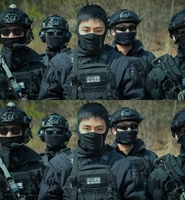 Facebook page unveils photos of BTS member V in counter-terrorism unit gear
Facebook page unveils photos of BTS member V in counter-terrorism unit gear -
 Gov't likely to accept university chiefs' request to lower med school enrollment quota
Gov't likely to accept university chiefs' request to lower med school enrollment quota -
 S. Korea not invited to G7 summit meeting this year: sources
S. Korea not invited to G7 summit meeting this year: sources -
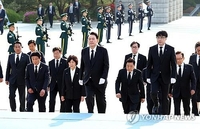 Yoon's approval rating sinks to lowest point since taking office
Yoon's approval rating sinks to lowest point since taking office -
(URGENT) N. Korea conducted 'super-large warhead' test for strategic cruise missile: KCNA














